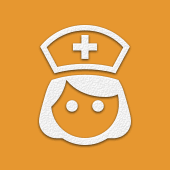
Breathing and Exercise
As soon as you wake up, you'll be asked to breathe deeply and cough. This is because fluids may accumulate in your lungs while under anesthesia. This exercise brings air to all parts of your lungs, preventing pneumonia.
Once you're feeling strong enough, you'll be asked to exercise your leg muscles by flexing them. We’ll gradually encourage you to sit up, stand up, and finally walk. We want to get you up and walking to prevent blood clots from forming and to prevent muscle wasting. You are expected to be able to get out of bed about 2-3 days after surgery, and your diet will return to normal by day 5.

Pain
Pain is, unfortunately, inevitable with a surgery of this magnitude. Despite the pain medications, you are expected to be in pain for up to a week. Our preferred method of pain relief is patient-controlled analgesia. PCA is a device with a button that you’ll push whenever you want another dose of pain reliever, which it will deliver through the IV. PCAs are programmed to allow self-medication at moderated intervals to avoid overdosing or developing a dependency to the drug.

Hospital Discharge
Your total hospital stay may last from 7-10 days, depending on your recovery speed. You’ll be discharged when you are capable of urinating, walking, and eating on your own. You will not be allowed to drive yourself home, so we suggest you arrange a friend or family to take you back home when the time comes. This is done for your safety, as you will not yet have enough strength to operate a car.
Keep in mind that you’ll need to visit the hospital frequently for about a week after your discharge. If you live remotely, Lahey will make arrangements to accommodate you at a nearby hotel.








